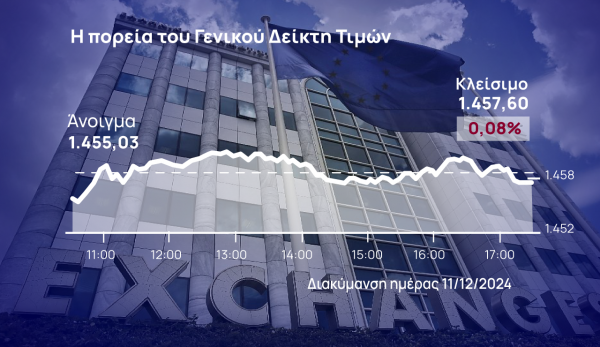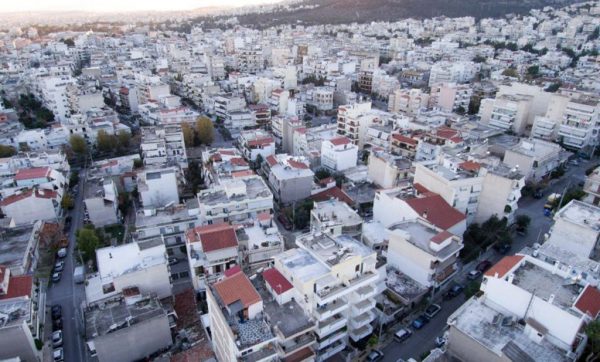
The decrease in births and, at the same time, the increase in deaths combined with immigration that continues at an unabated pace have resulted in the decrease of population recorded in the first (provisional) results of the 2021 census, which were released yesterday by the Hellenic Statistical Authority.
Thus, the country’s population is down by 3.5% compared to 2011, with its inhabitants now estimated at 10,432,481, of which 5,075,249 are men, while there are 281,983 more women.
The three factors affecting the population number
Specifically, as pointed out by the president of the Hellenic Statistical Authority, Mr Thanos Thanopoulos, during yesterday’s presentation of the provisional results of the 22nd Census of Population and Buildings, the decrease in births, the increase in deaths and immigration are the three main factors affecting the population number. In fact, for the first time, he said, we have recorded data on migration mobility from our country to abroad – data that will be presented in detail at a later stage.
This is the second consecutive census in which the permanent population appears reduced, since in the 2001 census the population of Greece was 10,964,020, while a decade later it had fallen to 10,816,286. However, that decrease was clearly smaller than the decrease between the last two censuses.
A population decline is therefore recorded in 12 of the country’s 13 regions, with the South Aegean Region being the only one that goes… against the grain, recording a 5% increase (from 309,015 inhabitants in 2011 to 324,542). In fact, in four regions – Western Greece, Peloponnese, North and South Aegean – men outnumber women.
The first region, in terms of population, is Attica (3,792,469 people), recording, together with the Region of Crete, (617,360 people) the smallest decrease (0.9%), followed by the Region of Central Macedonia (1,792,069 people and a decrease of 4.8%). In fact, according to provisional data, the largest decrease in Attica is recorded in the Regional Unit of the Islands (6.3%), followed by the Central Sector (3.2%). However, three regional units, East and West Attica and the North Sector, recorded an increase – 2.8%, 2.4% and 1.1% respectively. This increase, as experts emphasize, is related to internal migration, which, according to the Hellenic Statistical Authority, in the 2021 census has been dynamically observed.
In the midst of a pandemic
It is worth noting that this is a special census, conducted under unprecedented conditions, and despite the Covid-19 pandemic, the Hellenic Statistical Authority did not suspend the process, as happened in other European countries, with Germany being the most notable example. According to Mr Thanos Thanopoulos, this census could be characterized as a milestone, being the first digital census in the history of Greece, “with an extremely high participation rate in electronic self-registration, while the innovative way of collecting the data allowed, despite the difficulties due to the pandemic, a mass participation”.
At the same time, he pointed out, “the possibility, for the first time in the history of censuses in Greece, of interfacing with administrative sources made it possible to immediately and reliably identify errors, such as virtual entries, double entries etc. and ensured the quality and reliability of the results, while the depth of the data collected is the basis for the creation of the first structured Statistical Register in the country.”
It is worth noting that Greece is one of the countries that continues the traditional decennial census, when other countries conduct shorter annual population surveys based on administrative data. This is, of course, the direction in which our country intends to move, as from next year, according to the European regulation, it will have to provide census data on the population and its characteristics on an annual basis. We could therefore say that the 2021 census may be the last… traditional one.
Latest News

Capital Link Forum Highlights Greece’s Economic Resurgence; Honors BoG Gov Stournaras
Capital Link Hellenic Leadership Award recipient, Bank of Greece Gov. Yannis Stournaras, an ex-FinMin, was lauded for his pivotal role during Greece’s economic recovery

Tourist Spending in Greece Up by 14%, Visa Card Analysis Shows
Greece’s capital Athens emerged as the most popular destination, recording a 17% increase in transactions with Visa cards, surpassing even the cosmopolitan island of Mykonos.

Inflation in Greece Unchanged at 2.4% in Nov. 2024
The general consumer price index (CPI) posted a 0.4% decrease in November compared to the previous month

2024 Christmas Holidays: Extended Shop Hours Schedule
The 2024 Christmas Holidays extended shop hours schedule commences on Thursday, December 12 and runs until the end of the year.

ELSTAT: Seasonally Adjusted Unemployment Down in October
The number of employed individuals reached 4,284,694, an increase of 67,723 compared to October 2023 (+1.6%) and 22,002 compared to September 2024 (+0.5%).

Greek PM’s Chief Economic Adviser Resigns
In the post on his Facebook page, Patelis did not disclose the reasons that led him to step down.

“Masdar Invests in the people of Greece and in the vision of TERNA ENERGY”
Four messages from the CEO of Masdar, the Arab renewable energy giant, after its acquisition of 70% of TERNA ENERGY

Lloyd’s List Greek Shipping Awards 2024: Honors for leading companies and personalities in the Greek shipping sector
20 awards presented at the 21st annual Lloyd's List Greek Shipping Awards

Syria’s Bashar al-Assad, His family Granted Asylum by Russia
Reuters also reported that a deal has been struck to ensure the safety of Russian military bases in the war-ravaged country

Greece to Introduce Artificial Intelligence into Its Education System
Currently, Greece is taking its first steps to bring AI into classrooms through the AI4edu program, which is being co-funded by the European Union

















![Χειμερινή εξοχική κατοικία: Οι Ελληνες γυρνούν την πλάτη παρά την πτώση των τιμών [γραφήματα]](https://www.ot.gr/wp-content/uploads/2024/12/Capture-19-90x90.jpg)























 Αριθμός Πιστοποίησης Μ.Η.Τ.232433
Αριθμός Πιστοποίησης Μ.Η.Τ.232433